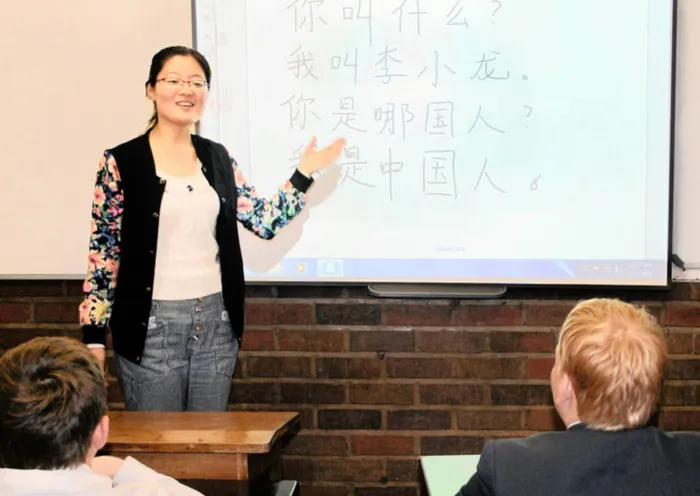UJ boosts relations at grassroots level

Mandarin teacher Jing Wang with her class at Kearsney College in KZN. Wang, from Beijing, has joined the school as part of a partnership with China's HanBan Confucius Institute. Picture: Paballo Thekiso Mandarin teacher Jing Wang with her class at Kearsney College in KZN. Wang, from Beijing, has joined the school as part of a partnership with China's HanBan Confucius Institute. Picture: Paballo Thekiso
#Focac: Johannesburg - The University of Johannesburg is home to a centre that aims to build better relations between South Africa and the People’s Republic of China.
The director of the Confucius Institute, David Monyae, said most of the interactions between the two countries were conducted at a high level.
The institute aims to boost relations among ordinary people on a one-on-one basis.
Monyae said: “Currently, the relations are being done through politicians and business people.
“Our aim is to try to have people-to-people interactions on culture and language. The one part of our institute deals with language, where we give Mandarin classes. The other part deals with the exchange of scholars. We will be sending students to China for exchange programmes.”
The institute, which was established more than a year ago, has partnered with the Nanjing Tech University in China. Earlier this year, the Institute staged a Nelson Mandela exhibition by Chinese artist Li Bin.
The most important task for the institute, Monyae said, was to stop the fear mongering around China and its involvement in Africa.
“Most of the information written about China is from the Western world and it comes from a fear-mongering perspective. The message is always that they are here to buy us.
“We need to look beyond that, and should not take a simplistic view. We need to remember that the Chinese and Africans started trading with each other a long time ago, before white settlers arrived.
“Our civilisations collapsed but recently there has been a resurgence of the Chinese economy. We need to look at what lessons we can learn from them.”
Monyae said learning what made Chinese people tick would be an advantage for African countries.
The Confucius Institute, which Monyae co-directs with Professor Lyu Jiangao, is the youngest of five such institutes in the country.
The others can be found at the Stellenbosch University, the University of Cape Town, Rhodes University and the Durban University of Technology.
The Chinese government runs about 400 Confucius Institutes throughout the world, 42 of which are in Africa.
The UJ institute will be approaching cultural matters slightly differently to its counterparts.
“We are going to take an African approach. We will also work with institutions like the Mapungubwe Institute for Strategic Reflection.
“We need to understand how our cultures are similar yet different,” Monyae said.
The institute teaches locals Mandarin, and if there is a demand for it, Chinese people will be taught South African languages.
Regarding public resistance towards the introduction of Mandarin in schools, Monyae said the language would not be compulsory, but would offer an advantage.
“This will be a golden opportunity for South Africa – if we understand the language, it can lead to the growing of Chinese businesses in the country, and will help with job creation.”
tebogo.monama@inl.co.za
THE STAR